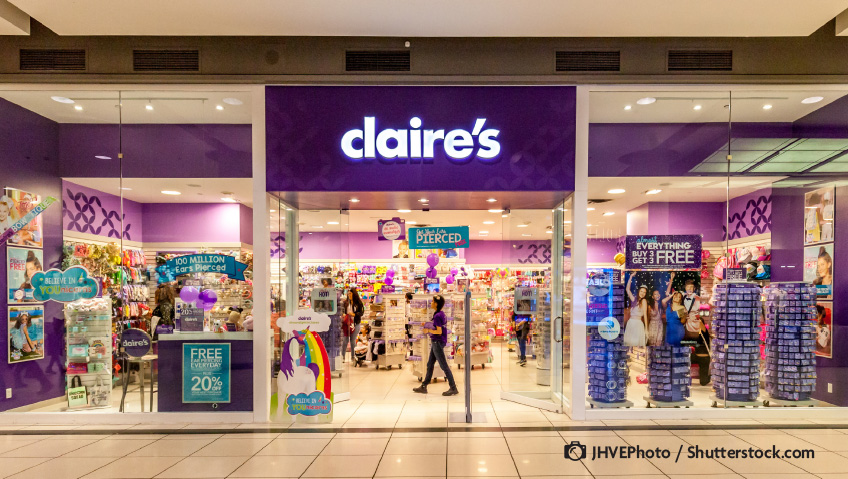Privately held investment company Ames Watson has acquired the beleaguered Claire’s North America business, which includes upwards of 1,000 stores, for $140 million. The firm has a plan to modernize and revitalize the retailer back to profitability.
Founded in 1974, Claire’s has been a stalwart presence in shopping centres for those on the hunt for youth-focused fashion accessories, jewellery, and cosmetics, but a massive debt load and changing consumer behaviours lead it to file for Chapter 11 bankruptcy in August 2025, its second time doing so in seven years.
Lawrence Berger, partner and co-founder at Ames Watson, stated, “Claire’s is one of those rare brands that defines a stage of life—old enough to buy your first lip gloss, but still young enough to believe it could change your world. We went and started to do some very deep due diligence, and we came to the conclusion that this was a broken business, not a broken brand,” he told CNBC. The co-founders of the company hope to appeal to the millennial moms who would bring their children to the stores as a full circle moment, citing the generational impact of the brand.
The investment company engaged RCS Real Estate Advisors to carry out due diligence and negotiation with landlords. It managed to secure preliminary agreements with hundreds of property owners across the U.S. and Canada, finalizing many.
This isn’t Ames Watson’s first brand revitalization effort. It purchased headwear retailer Lids in 2019 and turned it around, and plans to do the same for Claire’s by focusing on exclusivity, customization, and cultural relevance through upgraded merchandising and marketing.
“Every turnaround we’ve done begins with people,” said Tom Ripley, partner and co-founder at Ames Watson, which is why there are plans to increase pay, benefits, and training for employees. “Claire’s has an incredibly passionate field team—many with 20 years or more in these stores—and their loyalty will be the foundation of this next chapter.”
The rebuilding process could take up to a year to come into effect but will be impactful. Berger said the company, with more than $2 billion in revenue, considers itself as a “mini Berkshire Hathaway,” that buys and transforms companies with no intention to sell.




